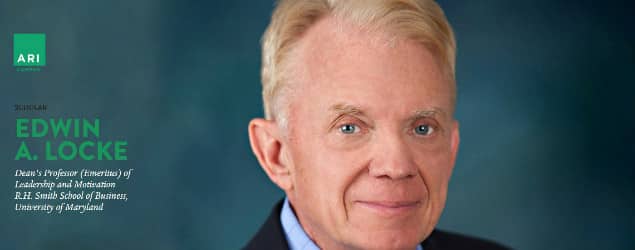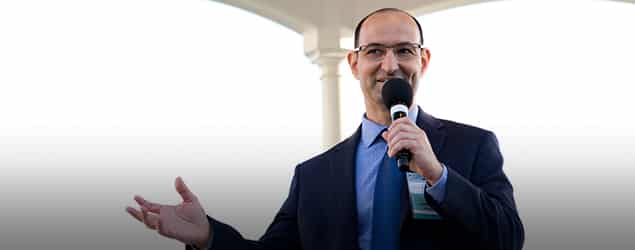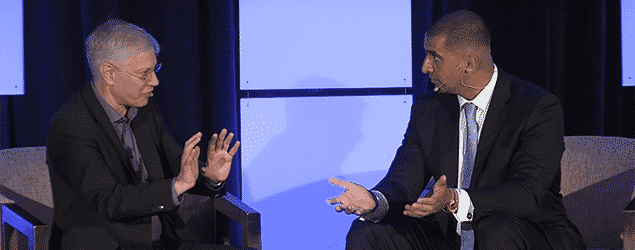Anniversary Chapters: Edwin A. Locke, “The Traits of Business Heroes in Atlas Shrugged”

The year 2017 marks the 60th publication anniversary of Ayn Rand’s Atlas Shrugged, so we’re talking to the authors of chapters in Robert Mayhew’s book Essays on Ayn Rand’s “Atlas Shrugged.” First up is Edwin A. Locke, whose chapter “The Traits of Business Heroes in Atlas Shrugged” focuses on character traits and moral virtues shared by the novel’s many business heroes, such as Hank Rearden, Francisco d’Anconia and Dagny Taggart.
Locke brought a wealth of experience to bear on the project. “At the University of Maryland, where I taught in the Psychology Department and the Business School, I offered MBA students an elective course called ‘Business Heroes in Fact and Fiction,’” he recalled. “We read many non-fiction books about business heroes, and we also read Atlas Shrugged. Each student’s goal was to construct a list of the traits of business heroes. The list was updated and refined through discussion every week as new real-life heroes were introduced. The final list turned out to be remarkably similar to a list we constructed from looking at the fictional businessmen in Atlas Shrugged.”
Locke later published a book based on what he had learned in that research. The Prime Movers: Traits of the Great Wealth Creators was based on a study of eighty highly successful businessmen. “I introduced each chapter with a quote from Ayn Rand or from Aristotle,” Locke said. “Later, when Robert Mayhew asked for ideas for his anthology, I offered to write a chapter on the traits of the heroes in Atlas Shrugged. I greatly enjoyed writing it.”
The headings in Locke’s chapter highlight the essential traits of the business heroes in Atlas Shrugged:
- Focus on reality
- Ability and confidence
- Independence
- Vision and purpose
- Passionate love of wealth creation
- Commitment to tenacious action
- Justice
- Motive power and the profit motive
To make the case for each character trait, Locke provides copious examples from the novel. But the essay’s value isn’t confined to literary analysis — it has practical application. “The traits that made the business heroes in Atlas Shrugged successful are the same traits that make real-life businessmen successful,” he states in the conclusion.
Moneymaking is widely considered to be a product of irrational, mindless greed and dishonesty. The selfish pursuit of profit is considered axiomatically to be evil and altruism to be good. No moral credit is given for making money, only for giving it away. This is called “giving back,” as though you took something that you had no right to.
Atlas Shrugged smashes these distortions and misconceptions at root.
Mayhew, in his introduction to the essays, states that Locke’s chapter “underscores the fact that the businessmen in Atlas are moral heroes . . . .” That focus on morality stands out in this excerpt from Locke’s essay:
Even in business, though free of fundamental guilt, [Rearden] cannot experience full moral pride, because he does not understand how virtuous he is.
Rearden’s implicit philosophy is correct, but like the other business heroes, he cannot validate it. They do not know how to identify or defend their virtues philosophically. As Francisco explains to Rearden: “You have been willing to carry the load of an unearned punishment — and to let it grow the heavier the greater the virtues you practiced. . . . Your own moral code — the one you lived by but never stated, acknowledged or defended — was the code that preserves man’s existence.” . . . Galt’s speech provides the full validation of rational egoism.
In writing his chapter, Locke was able to draw upon several decades of close attention to the novel’s literary and philosophical merits. “I have been an admirer of Ayn Rand and Atlas Shrugged since 1958,” Locke said. “I consider Atlas Shrugged to be the greatest novel ever written.”
If you find these perspectives intriguing, consider reading the whole book. Essays on Ayn Rand’s “Atlas Shrugged” is available here.



